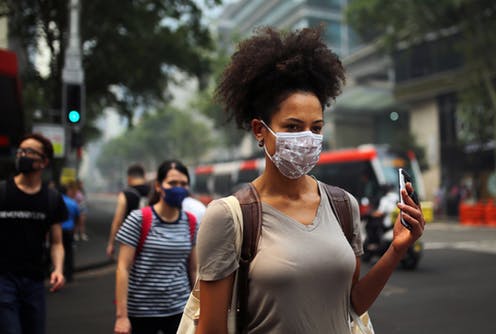As most of us are aware from extensive media coverage, around the world are an increasing number of people being diagnosed with a novel coronavirus (nCoV).
Although it is definitely a global public health issue, it is important to remain calm and keep up-to-date with the emerging facts.
You may have noticed that we have been sending correspondence to our patients, checking on recent travel activity and health. This is to ensure we that our clinic takes all public health precautions as recommended by NSW Health and the Australian Dental Association (ADA).
What we know so far about 2019-nCoV
Disclaimer: The information presented below is subject to change and is based on the current evidence available on 2019-nCoV.
Initial cases of 2019-nCoV originated from China and were those that had worked at or frequented the Huanan Seafood Wholesale Market in Wuhan in Hubei province. Live poultry (e.g. chickens) and wild animals were sold at this market, leading to the hypothesis that the initial infections of nCoV were spread from animal to human.
Although it is currently unclear which type of animal the nCoV infection has originated from, previous coronavirus illnesses such as Severe Acute Respiratory Syndrome (SARS) and Middle East Respiratory Syndrome Coronavirus (MERS-CoV) most likely originated from bats.
Since the initial cases, individuals living in distant cities such as Beijing, Shanghai and Guangdong have become infected with nCoV, regardless of whether or not they had been to Wuhan. These assumptions have led to a consensus that 2019-nCoV is able to spread from human to human. This spread likely occurs through coughing or sneezing, contact with saliva and being in contact with respiratory secretions from an infected person that are on surfaces.
What does coronavirus infection look like?
A human infected with coronavirus may experience serious illness involving the lower respiratory tract, such as pneumonia.
The following are the major clinical signs and symptoms of nCoV infection that have been reported thus far:
- Fever
- Coughing
- Shortness of breath
It is possible for severe cases of coronavirus infection to lead to pneumonia and potentially kidney failure.
Certain populations are at higher risk of serious coronavirus infection:
- Older adults
- Infants
- Medically frail and immunocompromised patients
How can we control the spread of nCoV and manage the risk in the dental practice?
With the global spread of nCoV occurring, individuals can make sure they are keeping up with high standards of infection control and hygiene measures such as respiratory hygiene (e.g. cough etiquette).
Worldwide, multiple laboratories are currently working hard on a vaccine against 2019-nCoV, including in China, the United States and Australia.
As a dental practice, it is important that we take extra precautions to help prevent the spread of 2019-nCoV.
You may have noticed if you have had a recent appointment with us that we are already contacting patients regarding the coronavirus.
As per the recommendations from NSW Health and the ADA, we will continue to take these precautions which include:
- Emailing patients that have upcoming appointments with us to ensure it is safe for them to attend their appointment and to postpone if there is any risk
- Asking patients who book over the phone about their recent travel history and health status prior to scheduling the appointment, and
- Checking with patients who attend the practice whether they have been overseas in the last 14 days and if they have recently experienced fever or acute respiratory infection
Take Home Messages
The recent unfolding novel coronavirus situation is being reported excessively in the media. It is important to keep up-to-date with the facts (where possible from objective sources such as NSW Health and the ADA), as they are subject to change as this situation continues to unfold.
The best approach is to remain calm and continue to practice high standards of hygiene.
Please be aware that we are working diligently to take all possible precautions to avoid any risk of coronavirus at our practice.
If you have any questions, please do not hesitate to contact us and we will happily answer any enquiries to the best of our ability or refer you to relevant sources that may assist your enquiry.
For more information, please visit:
ADA: https://www.ada.org.au/News-Media/News-and-Release/Latest-News/Coronavirus
NSW Health Factsheet: https://www.health.nsw.gov.au/Infectious/alerts/Pages/coronavirus.aspx
NSW Health FAQs: https://www.health.nsw.gov.au/Infectious/alerts/Pages/coronavirus-faqs.aspx

